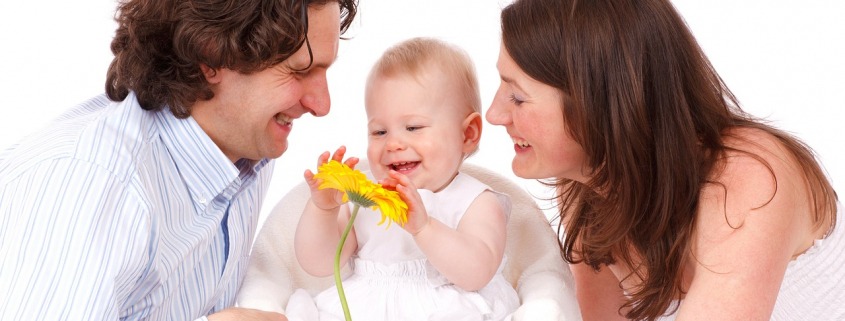Ten things I wish more people understood about reinforcement
Reinforcement, the strengthening of behaviour through the consequences of that behaviour (reinforcers or reinforcing stimuli), is a key psychological concept, one that has been applied widely in homes, schools and workplaces. Reinforcement has entered into our popular culture. It is common to hear non-psychologists talk about the importance of reinforcing particular behaviours and the strategies that they use for doing so. However, it is a concept that is often sadly misunderstood.
Here are ten things I wish more people understood about reinforcement:
- Reinforcement does not mean stickers, or ticks, or saying ‘good girl/boy’. In fact, stickers, ticks, or saying ‘good girl/boy’ may be reinforcing or not depending upon the child and the context. And there’s so much more to reinforcement than gold stars! So please, put the sticker book away.
- Reinforcement is defined by its effect. A particular stimulus is a reinforcer, for a particular person in a particular context, if it strengthens the behaviour that precedes it. That’s it. It doesn’t have to look like a reward, or be pleasant, or even make a lot of sense to an outside observer.
- Reinforcement is change. Sometimes it is the addition of a stimulus that is reinforcing, for example, praise. This is called positive reinforcement. Other times it is a removing of a stimulus that is reinforcing, for example, you take medicine and your headache goes away. This is called negative reinforcement. The difference between positive and negative reinforcement can be blurry, but reinforcement always involves some change and it is the change that’s reinforcing.
- Some reinforcers are more natural than others. When wanting to reinforce many people reach straight for artificial (contrived) reinforcers like stickers. In fact, much reinforcement is natural. That is, the reinforcer is a naturally occurring aspect of the situation that the behaviour brings about. For example, if you actually enjoy reading, then you’ll read more often. The reinforcer, the pleasure of reading, naturally occurs when you read.
- Reinforcement happens, whether you are trying to do it or not. As reinforcement doesn’t just mean artificial reinforcement, but also natural reinforcement, you are reinforcing particular behaviours in your child whether you are trying to do so or not. In fact, if any behaviour in any organism is being strengthened over time due to the consequences of that behaviour, or because the behaviour is itself enjoyable in some way, then reinforcement is happening. That’s what reinforcement means.
- Natural reinforcement is crucial to lasting behaviour change. Some parenting experts have expressed grave concerns about reinforcement. What they are actually concerned about is the wide-spread overuse of artificial reinforcement (‘rewards’), and rightly so. In fact, behaviours that are maintained by natural reinforcement are more likely to persist and to be experienced as freely chosen.
- Particular stimuli are reinforcing in particular contexts. Stimuli aren’t just reinforcing or not. They are reinforcing in a particular context. So a big plate piled high with your favourite meal is likely to be highly reinforcing when you are hungry. But after you’ve just finished eating a big meal? Probably not.
- We can learn to find specific stimuli reinforcing (or not). Some stimuli are inherently reinforcing, for example food (as long as you are hungry). But many reinforcers are learnt. For example, money functions as a reinforcer for most of us because we have learnt that we can use the money to purchase reinforcers (like food). Anything that happens at the same time as reinforcement may become reinforcing itself, for example, children may find nonsensical phrases or nicknames reinforcing if their parents usually use these phrases when giving affection.
- Just because you think you are reinforcing behaviour, doesn’t mean you are. Just as we can learn to find particular stimuli reinforcing, we can also learn to stop responding to particular stimuli as reinforcers. For example, many school children do not respond to phrases like ‘good try’ as reinforcers. They’ve learnt that when adults say ‘good try’ they actually mean ‘wrong’. So how do you know when you are reinforcing behaviour? When the behaviour is strengthened over time.
- Get your relationship right and you will have natural reinforcement on your side. If you are responsive, loving and kind, if you are sincere, honest and respectful of both your child’s needs and your own, if you regularly consider your child’s perspective and try as best you can to take their needs and wishes into account… then you’ll have tonnes of natural reinforcement strengthening exactly the kinds of behaviours you want to strengthen in your child. That’s not to say you won’t experience particular challenges. But, overall, your child is likely to be kind, generous, happy and confident.
Apply it to your life: Get natural reinforcement on your side by building a strong, loving and respectful relationship with your child. If you are wanting to strengthen a particular behaviour in your child, then think about what the natural reinforcers for that behaviour might be. Hint: consider your child’s perspective, what does he or she want? Remember reinforcement is defined by the effects so experiment and see if the behaviour is strengthened over time or not. Keep experimenting until you discover what works!














Leave a Reply
Want to join the discussion?Feel free to contribute!